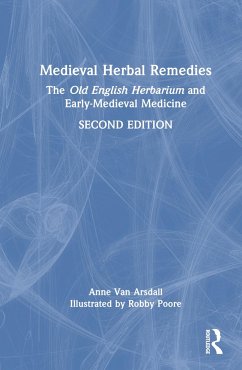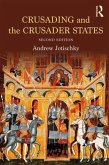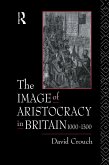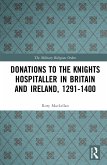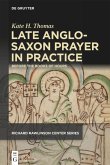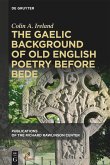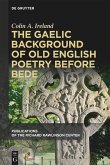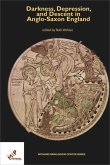Featured here is a modern translation of a medieval herbal, preceded by a study showing how this technical treatise on herbs was turned into a literary curiosity. The transformation began with its first translation in 1864, one that continues to affect how this and other early-medieval medical texts are read.
Hinweis: Dieser Artikel kann nur an eine deutsche Lieferadresse ausgeliefert werden.
Hinweis: Dieser Artikel kann nur an eine deutsche Lieferadresse ausgeliefert werden.
Praise for the second edition
"I was delighted to see a revised edition of Anne Van Arsdall's Medieval Herbal Remedies. For two decades, her book has served as an example of how to make medieval herbalism accessible to readers beyond just specialists in the field, through a much-needed modern translation of the Old English Herbarium, a study of the nineteenth-century antiquarian Oswald Cockayne and his own, curious 1864 translation of the Herbarium, and a fascinating comparison of early medieval herbalists to modern folk-healers. A welcome update to this edition is Van Arsdall's placement of the Old English Herbarium in a broader European context, as an heir to Galenic, monastic, and vernacular medical traditions."
Winston Black, St. Francis Xavier University, Nova Scotia
"In the nineteenth century T. Oswald Cockayne introduced Old English medical texts to the modern world. In her 2002 edition Anne Van Arsdall reintroduced Cockayne and his work to the twenty-first century. Now, a valuable second edition dramatically expands the story of the man whose tragic life reads like a 'bittersweet Victorian novel' and whose scholarly work has gone largely unrecognized. More, it dramatically re-envisions the Old English medical texts Cockayne valued only for the vocabulary they contributed to the Old English lexicon. By resituating them, not in an 'Anglo-Saxon' context, but in the larger early medieval European tradition and by reading them as technical medical texts based on herbalism, Van Arsdall charts a promising new path for the study of The Old English Herbarium and its textual kin."
Dabney A. Bankert, Professor Emerita of Medieval Literature, James Madison University
"This significantly revised text offers a thought-provoking introduction to medieval medicine through the Old English Herbarium. Van Arsdall vividly shows how early medical texts were long thought to be of little value except for studying Germanic philology or folklore. The substantial introductory chapters and notes to the translation presented here show how we need to rethink such texts as technical literature - and indeed a literature that grew out of rich cultures of medical knowledge and practice across Christendom rather than just among the English. The crisp translation of the Herbarium makes this fascinating and complex world of learning further accessible. Medieval Herbal Remedies will be a valuable resource for teaching new histories of premodern medicine and encouraging new research in the field."
James T. Palmer, Professor of History, University of St Andrews
Praise for the first edition
"Anne Van Arsdall's new and elegant translation with its extensive and thoroughly documented introduction comes as a welcome correction to Cockayne's antiquated and often misleading nineteenth-century edition of the Old English Herbarium. At last the Herbarium is restored to a prominent position among the texts of late classical and medieval medicine in Western Europe, and offers to a wide audience a fascinating opportunity for understanding the value of herbals in the development of the medieval tradition of healing."
Maria Amalia D'Aronco, University of Udine, Italy
"Presents a modern, readable, accurate, and lucid new translation of the Old English Herbarium, one that replaces Cockayne's and one that will be the standard translation for many years to come."
Helen Damico, Professor of Old English, University of New Mexico

